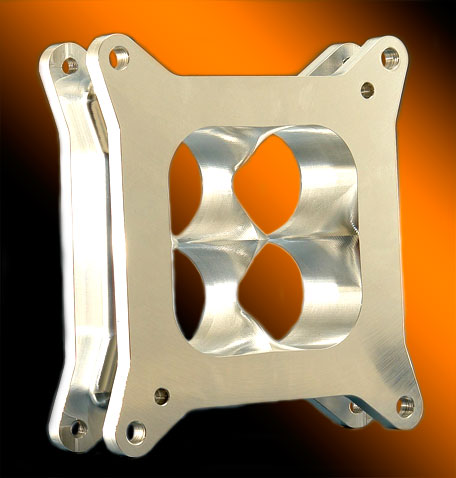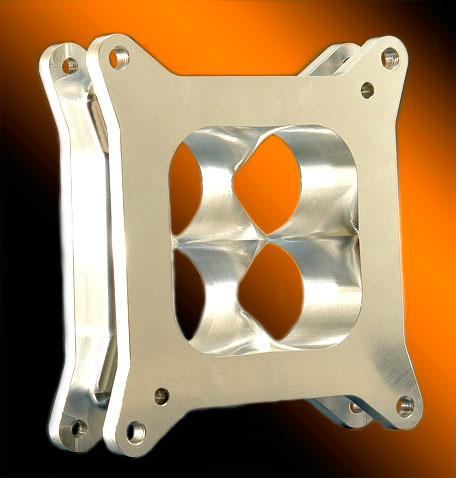There are many manufacturers producing open design carburetor spacers today many of which do little other than increase plenum volume. The plenum volume effects the wave actions in the manifold also know as ram charging. Changes to this wave action may or may not result in an increase in performance based on the characteristics of your engine. However a properly designed carburetor spacer can perform other functions that will increase power regardless of the particular characteristics of the engine. Air flows poorly over sharp edges, which is why carburetors have a radius at the entry of each barrel. But air also has problems exiting through a hole with sharp edges ie the carburetor base plate. By adding one of our Hi-Flow spacers to this system the air may diffuse outward instead of traveling in a straight path. This effectively reduces the exit losses of the airflow through each barrel allowing any given carburetor to flow more air. Our Hi-Flow spacers also help the airflow turn into the runners. The diffusion action gradually increases the cross-sectional area of each barrel therefore the flow must slow down. This reduction in velocity decreases the kinetic energy of the flow and makes it easier for it to change direction. With the Hi-Flow spacer the air temporarily slows entering the plenum turns and accelerates down the runner. With no spacer the airflow crashes into the manifold floor loses all of its velocity and drops much of its fuel out in the process.
Braswell Hi-Flow
Braswell Hi Flow Lighten Carburetor Spacer with 1.800 hole
All our carburetor spacers are fully CNC machined from billet 6061-T6 aircraft aluminum. We offer spacers for Braswell, Holley, and Dominator 4-barrel carburetors in four styles- open, four-hole, hi-flow, and angled. Many of our spacers are available in an ultra-light version, which are some of the lightest spacers on the market. We also make manifold shear plates and inserts for Dominator style carburetors.


